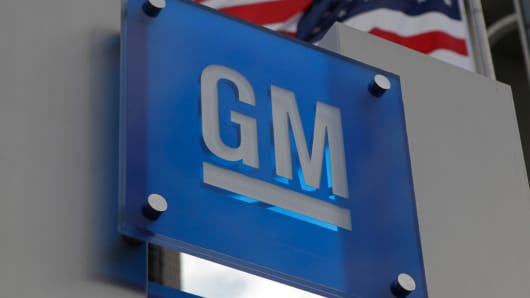Second, a common refrain is that there were no private-equity or other firms that expressed interest in taking a stake in either company before the government had to step in. Well, that's because the bankruptcy process wasn't allowed to play out. The auto companies had out-of-whack balance sheets that included unreasonable liabilities, including union liabilities. No private-equity firm was going to let the UAW have any type of preferred status (although the government ultimately did, see below). However, by not going directly into a bankruptcy proceeding where these liabilities could be renegotiated, there was never a true process to solicit and evaluate interest from financial or strategic partners. That's what the bankruptcy process was designed to do, but it never had the chance.
(Read more: First female CEO shatters Detroit's glass ceiling)
The reality is that GM and Chrysler had significantly valuable brands and other intellectual property, manufacturing equipment, a loyal customer base, a skilled workforce and more. There was substantial demand for their products. These were financial mismanagement bankruptcies stemming from noncompetitive labor costs and liabilities, not ones brought on by a lack of interest in the core businesses. To think that no financial or strategic buyer would ultimately have had an interest in these acquiring the assets of these companies is preposterous. Even if you could make that unreasonable and highly unlikely argument, consumer demand for automobiles would still be in place, which means that other manufacturers, like Ford, would have benefited and grown to absorb that demand, and of course a good portion of the related workforce and ecosystem.
To say that the government was the only white knight here ignores basic market principles. Does anyone really believe that the entire auto industry would have gone away or have any precedent for that happening?
Additionally, both GM and Chrysler did go bankrupt. Yes, the government took both companies through the process, using taxpayer money to sustain the companies while they moved the interests of the major union above that of the other creditors (including those that manage the retirement plans of many Americans) and only once this chicanery had been completed then went through the same process that the companies should have been in to begin with.
(Read more: Kyle Bass takes stake in 'undervalued' GM)
However, the outcome was pricey in multiple ways, even beyond the creditors losing preference to the UAW and its various interests.
On Chrysler, the taxpayers lost more than $1 billion and the company ended up in majority control of a non-US company (Fiat, an Italian company) and minority controlled by a trust for the benefit of retired auto workers. An IPO for Chrysler is planned for 2014, but the taxpayers still will record a loss and America also records the loss of ownership of an iconic brand.
On GM, the taxpayers lost more than $10 billion and now have no participation in future upside of that company.
Ultimately, we spent more than six figures per job to "save" them from a mythical end and end up with billions won't be recouped.
(Read more: As Uncle Sam unloads GM, shares at an all-time high)
What about the small businesses? Many argue that the bailout was about saving the small suppliers. But if this was about helping small business, there are many ways that they could have been helped directly. Perhaps the banks that were also bailed out by taxpayers could have been asked to extend credit to the small suppliers in the automotive ecosystem.
I have had enough with the bailouts. Our government shouldn't be picking winners and losers and deciding what companies should receive taxpayer assistance and which shouldn't. Moreover, they shouldn't be prioritizing certain groups' interests over others and shouldn't be touting successes that aren't real.
Let's not pretend that this bailout is more than what it was: A mere wealth transfer that helped the unions at the expense of all taxpayers. When that type of cronyism happens, America loses.
— By Carol Roth
Carol Roth is a CNBC contributor, a "recovering" investment banker and author of "The Entrepreneur Equation." Follow her on Twitter @CarolJSRoth.


